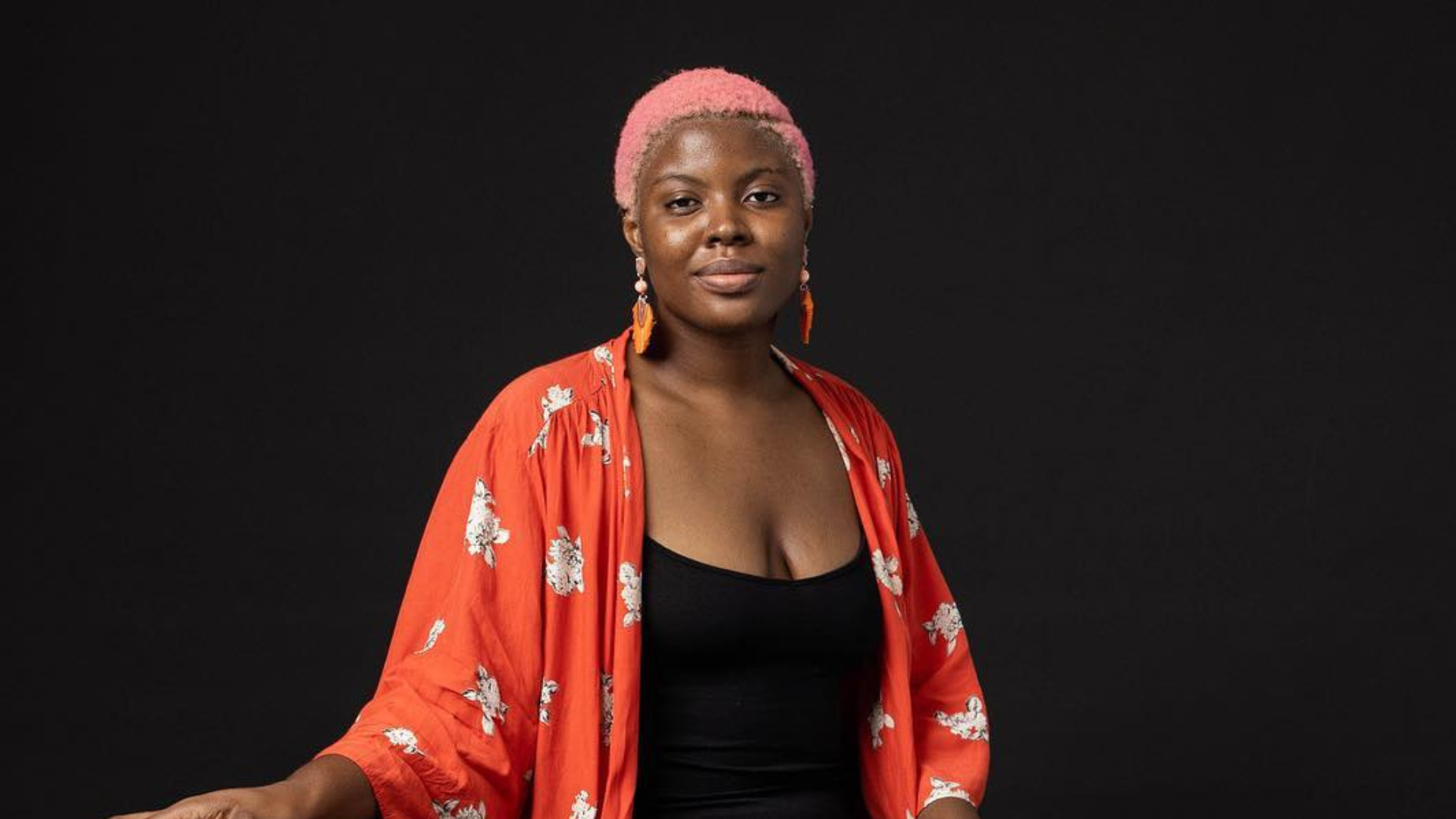
The first impression of Renike Olusanya’s style is that she is unfettered by trends. This is firmly shaped by the fact that she marches to the beat of her own drum. The Nigerian artist and illustrator has spent years developing a wardrobe filled with comfortable and richly colored items. At times she meshes bold colors with one another. But how does an artist with no keenness to experiment with brands emerge to become one of Nigeria’s most fashionable artists, loved and cherished for her unique style on X formerly known as Twitter?
It’s through Bawsty, a brand she co-founded with her friend Damilola Onosowobo. The company was created as a means to offer plus-sized women a choice to wear exquisite outfits that make them feel elegant but also sexy. “We thought it was a good way to define a great experience for women,” Olusanya said.
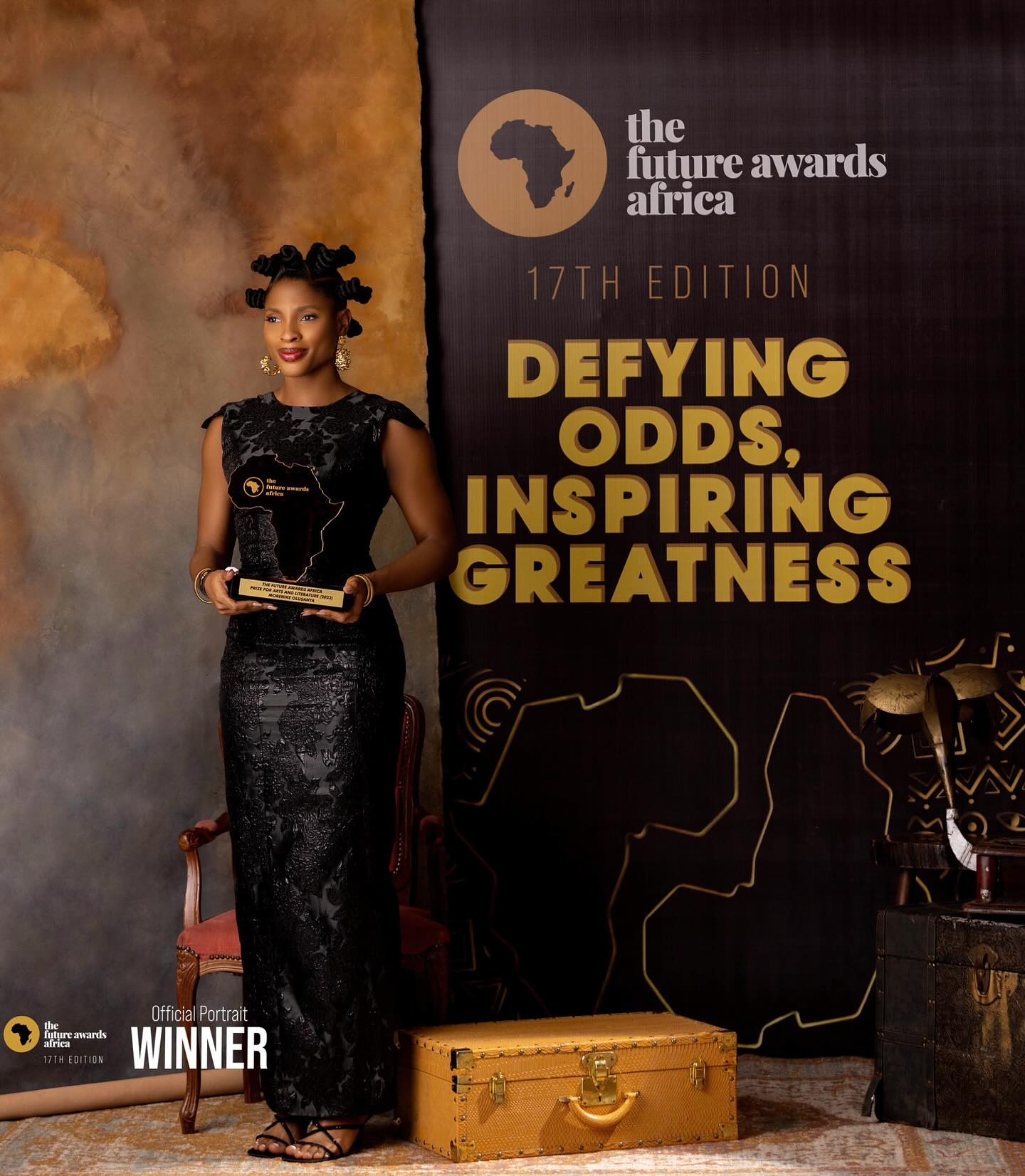
Bawsty transcends more than fashion inclusivity and business. To Renike, it’s a gift to expand her style. “Since we created Bawsty, I have found myself being more experimental with clothes,” she shares. “With research, I now understand the type of clothes to create for women with similar body types, it helps me to know the kind of clothes to wear.” The designer mentions that the brand has also taught her a lot about her body type.
Renike Olusanya’s career as an artist has spanned years. She began in 2020 as an illustrator behind most of the fascinating book cover designs including “Instructions for Dancing” by New York Times bestselling author Nicola Yoon and “Goodbye Love” by Briuana Green. She has now transcended into digital art. While she doesn’t take the traditional form of art, she has been able to showcase her works at group exhibitions throughout the world. The artist has also won awards including the prestigious prize for arts and literature at the Future Awards Africa in 2023.
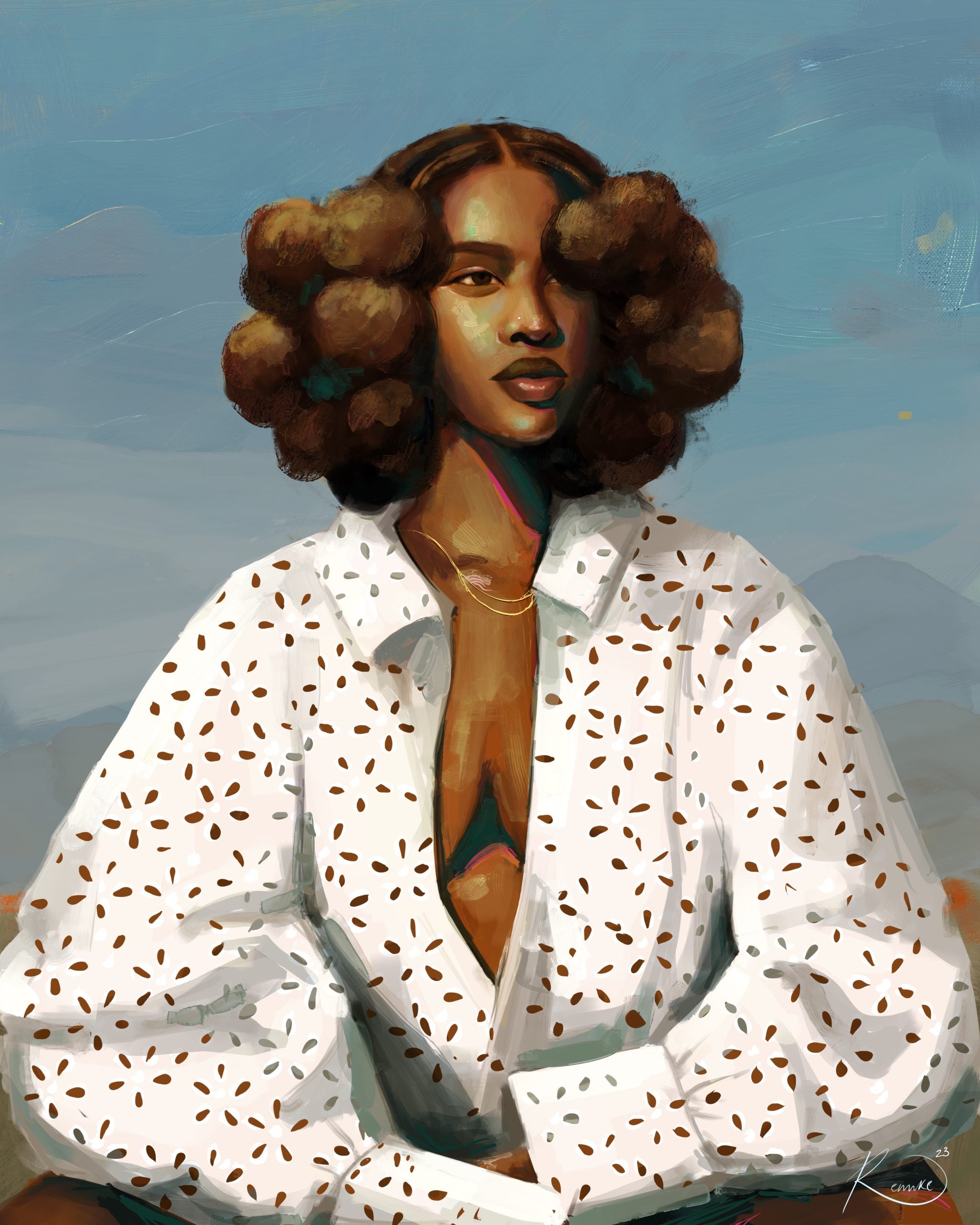
Renike Olusanya’s art is vivid, expressive, and intuitive; always elaborating on the essence of blackness or interpreting what it means to be a Black woman. In her world, she brings these women alive, all beautiful, with afro futuristic hairstyles and an almost lively reflection of the women she knows in the physical world.
“As the co-founder, I’m in charge of marketing and sales, Renike said. “Interacting with people, customer service, and sales kept me busy. I’m not happy [when] my art is suffering but being in this new space has helped me navigate things about fashion. I’m committed to not making it suffer so much this year.”
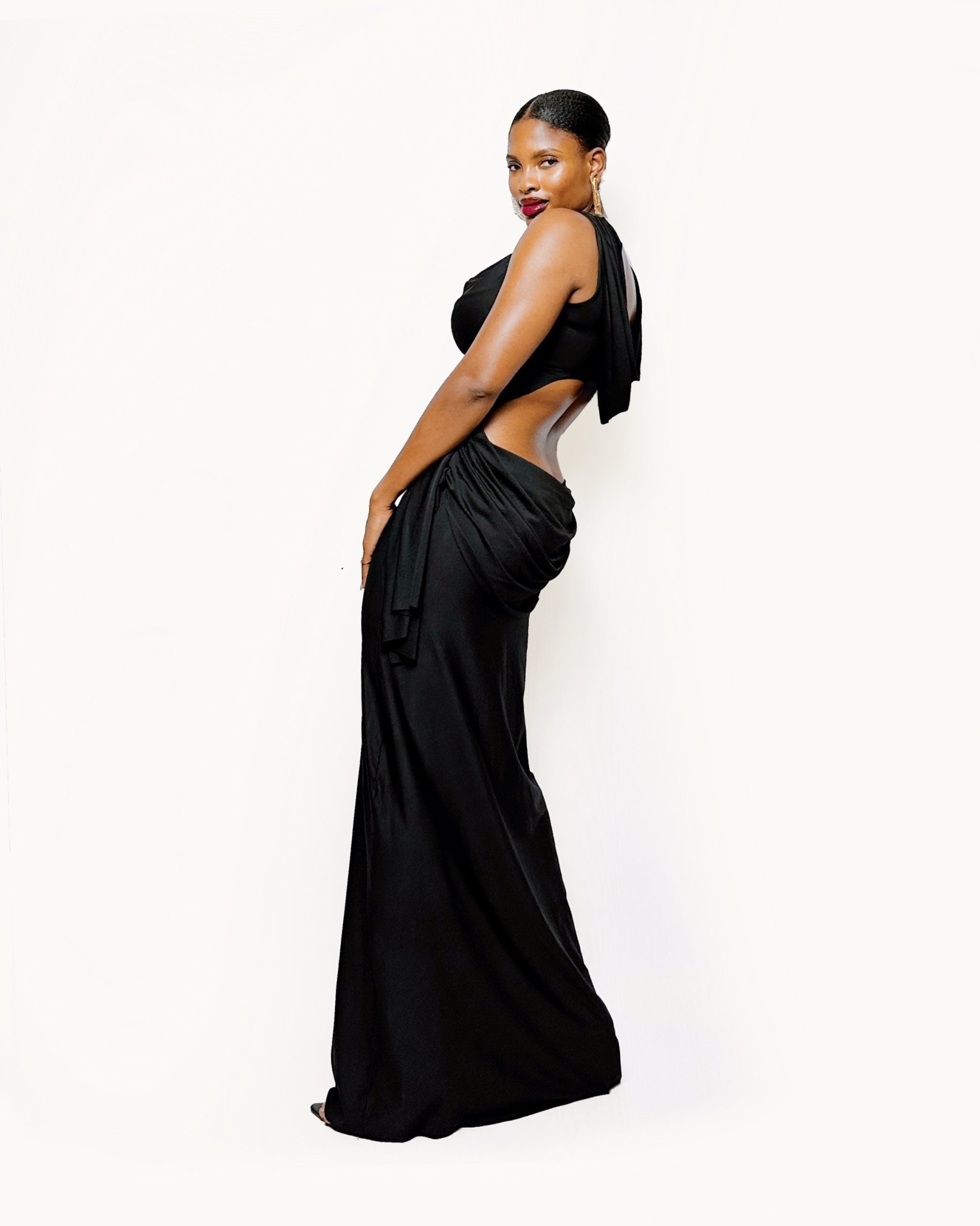
Aside from professing her love for Tracee Ellis Ross, her favorite fashion icon, she’s charmed by the design ethos and elegance of the brand Hanifa. She compliments the brand’s knitwear and its inclusive intentions. But she’s very much inspired by her friend Chigozie Obi and credits her for her eagerness to experiment with more clothes. “Chigozie is so free with her style, she doesn’t care. From being her friend, I’ve learned how to stop being [so self-conscious].”
Obi is a self-professed intentional It-girl who understands the socio-construct attached to women’s bodies and what they are wearing in Nigeria. She works diligently to deconstruct and revolutionize that idea in her art by creating works with bold representations of women in cut-offs, crop tops, and patterned pants. “Women are just always criticized, no matter what,” she says. “Whether they are wearing what covers them or not. It’s like there’s no middle ground. So I wish a lot of women would find their creative freedom and find what they’re comfortable with wearing.” She explains here that as a woman she had to go on her own journey of self-discovery and confidence through her clothing choices.
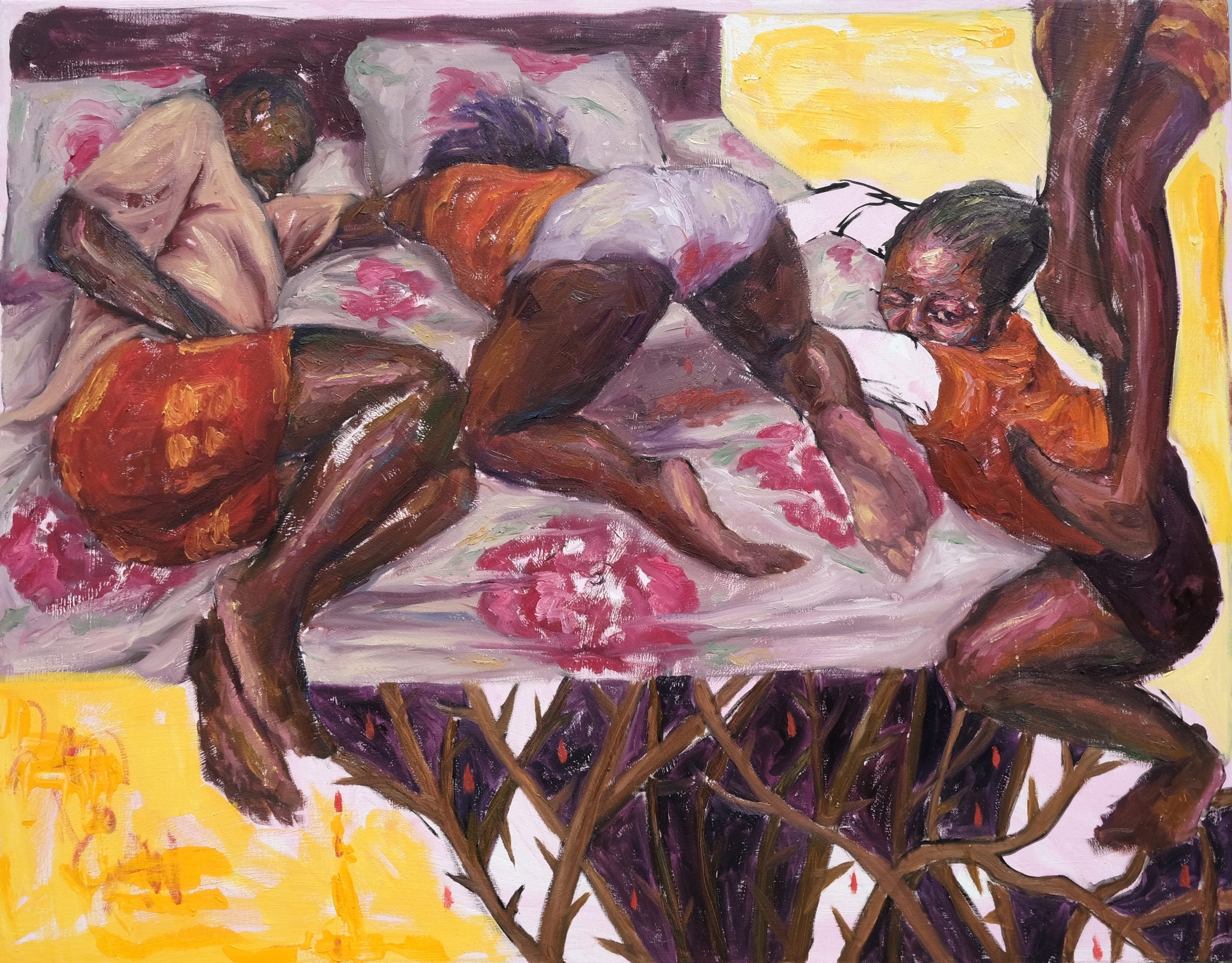
Like what she mirrors in her art, her style is just as compelling: chic renditions of traditional outfits, clashing prints, and outfits that evoke minimalism. While the artist is not big on trends, she loves a redefined version with a subtle twist. “I enjoy when people layer clothes [too],” Obi adds.
Chigozie’s work as a visual artist is the visual manifestation of her experience as a woman living in Nigeria. In it, she captures the everyday reality of this notion with acrylic on canvas. “In my work, you’ll find a lot of things concerning women, because I am a woman, and there are so many things that affect us in [the] this world.” She adds: “I use my work as a means to connect with other women, but also to tell people about what women go through [and to] talk about our issues. [This] creates a space for conversation. Throughout the past seven years, she has held a solo exhibition and also been a part of multiple group exhibitions. She won Nigeria’s prestigious prize for art known as the ArtX prize and the Future Award Africa.
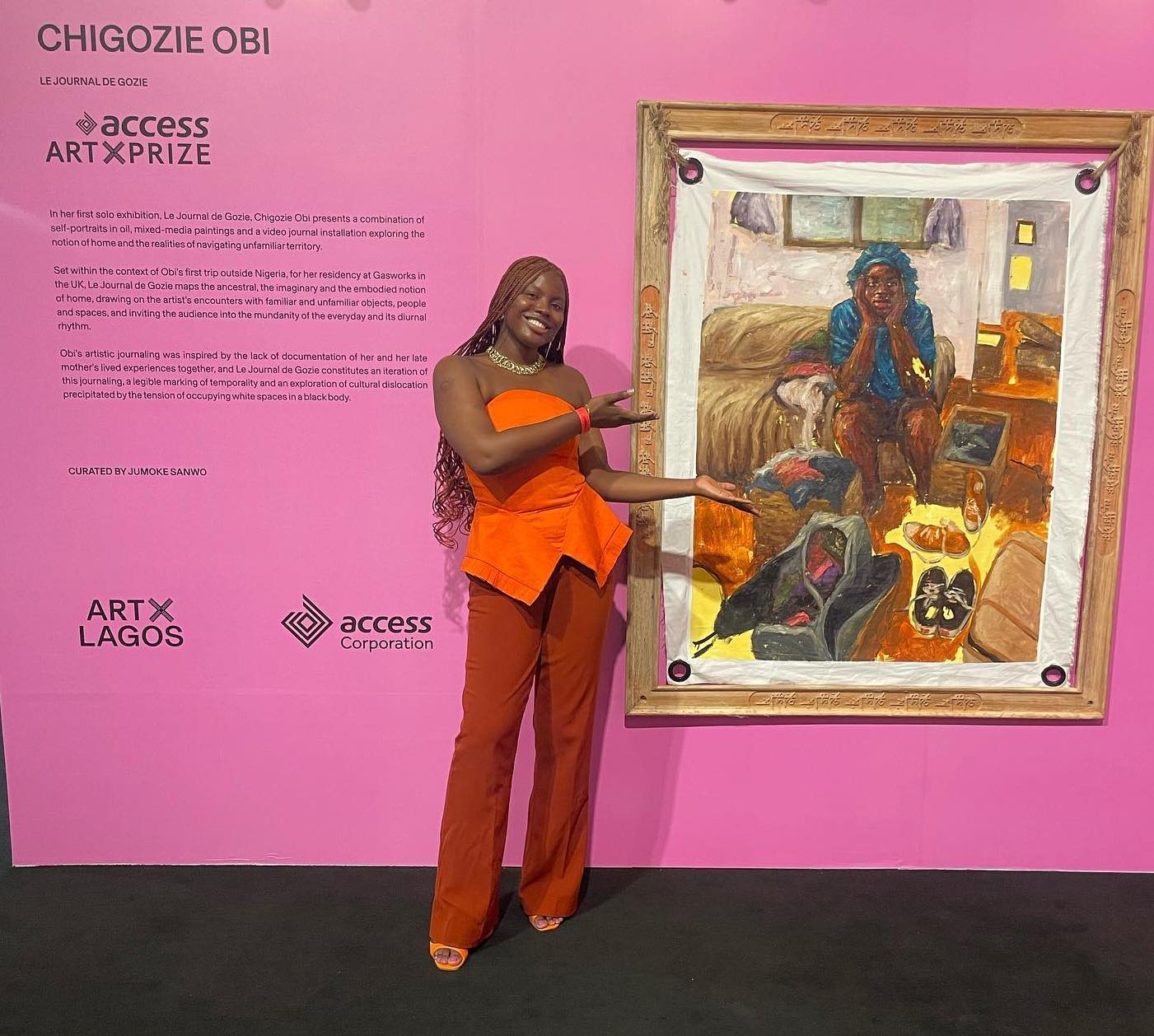
She describes Hermes as one of her favorite fashion brands for their intentionality with their branding and their artistic packaging. “They put a lot of art in their branding and I really like that because I think it’s like a unique way to show up your work and just your art.” Obi mentions that they often commission artists which is something she truly admires. Hanifa, Bawsty, and Nana Ama Studio are favorites of hers too.
One bias she’s been unable to grasp is people’s one-sided perspective of what an artist should look like when it comes to their personal style. She tells me she feels it’s a bit silly and says that she has dealt with this on a personal level. “Just because you’re a visual artist doesn’t mean that you can’t expand how you look or how you express yourself. Your expression doesn’t have to be through your art, it can also be through your clothing,” Obi adds.